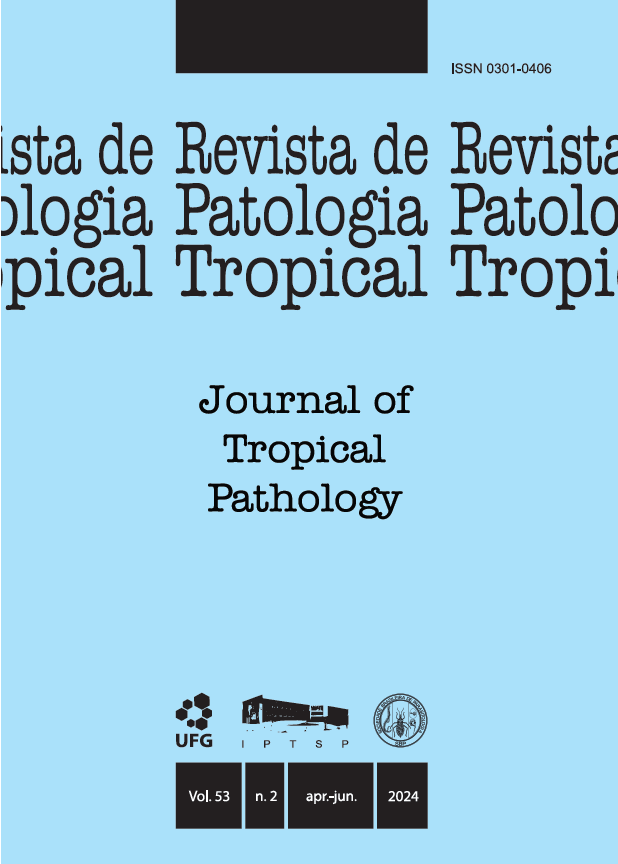Familial distribution of hepatitis B virus infection in Espirito Santo state, Brazil
DOI:
https://doi.org/10.5216/rpt.v53i2.79445Resumo
To evaluate the familial distribution of hepatitis B virus (HBV), a retrospective analysis of medical records of patients treated in Vitória, Espírito Santo, Brazil, was performed. Patients with markers of HBV infection who had a family member with evidence of HBV infection were index cases of each family. Of the 65 index cases, 26 (40%) had chronic hepatitis (CH), 13 (20%) liver cirrhosis (LC), 4 (6.1%) hepatocellular carcinoma (HCC), 20 (30.8%) were inactive carriers and two (3.1%) had immunity after contact with HBV. Among 275 family members, 226 had evidence of HBV infection, 171 of which were HBsAg positive and 55 had previous contact and immunity. HBsAg was significantly higher in consanguineous than non-consanguineous relatives (170/244 and 1/31, respectively, p <0.0001) and among siblings of index cases. There were 2 to 12 affected individuals per family, involving one, two, or three generations. In 14/65 families, two or more cases of LC, CH, or HCC were observed, compromising up to three generations. Results demonstrate familial clustering of HBV in Espírito Santo in up to three generations and familial aggregation of severe forms of the infection. Family investigation of HBV is important, allowing early diagnosis and treatment before progression to advanced forms of the disease.
KEY WORDS: Chronic hepatitis; liver cirrhosis; hepatocellular carcinoma; viral transmission; familial aggregation.
Downloads
Downloads
Publicado
Como Citar
Edição
Seção
Licença
The manuscript submission must be accompanied by a letter signed by all authors stating their full name and email address, confirming that the manuscript or part of it has not been published or is under consideration for publication elsewhere, and agreeing to transfer copyright in all media and formats for Journal of Tropical Pathology.

